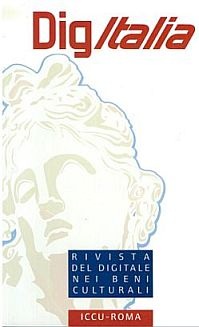Lo standard nazionale dei metadati gestionali amministrativi
Keywords:
Metadato, Dublin core, Weibel, Hakala, IEEE, DCMI, Full text, Reperimento delle risorse, SPECTRUM, CDWA, MARC, XML, EAD, SGML, DTD, Modelli di sintassi, Set minimo, IFLA, FRBR, MAG, OAIS, OCLC/RLG, W3CDTF, TGN, Reperibilità, Identificatori,Abstract
L o sviluppo di nuove tecnologie e conseguentemente di nuove funzioni quali l’accesso ai documenti elettronici, alle reti, etc., rende necessaria l’elaborazione di standard tecnici e lo sviluppo di nuovi protocolli, ai fini dell’accesso ai documenti su qualsiasi supporto per una divulgazione e insieme conservazione dell’eredità culturale dei vari paesi. Le biblioteche assumono quindi un ruolo vitale “nell’era digitale” e lo sviluppo di tecnologie ai fini del reperimento dell’informazionedovunque prodotta.
La biblioteca tuttavia rappresenta oggi e rappresenterà per il futuro, per i bisogni informativi della utenza, il primo luogo di conoscenza attraverso la quale viene messa a disposizione l’accesso alle risorse informative, siano esse disponibili in loco o telematicamente individuabili e raggiungibili.
Downloads
Download data is not yet available.
Downloads
Published
2005-04-11
How to Cite
Magliano, C. (2005). Lo standard nazionale dei metadati gestionali amministrativi. DigItalia, (1), 34–46. Retrieved from https://digitalia.cultura.gov.it/article/view/326
Issue
Section
Essays
License
The Authors publishing their contributions on this journal agree to the following conditions:
- The Authors detain intellectual property rights of their work and transfer the right of first publication of the work to the journal, under the following Licence: Attribution-ShareAlike 3.0 Italy (CC BY-SA 3.0 IT). This Licence allows third parties to share the work by attributing it to the Authors and clarifying that the work has been first published on this journal.
- Authors can sign other, non-exclusive licence agreements for the dissemination of the published word (e.g. to deposit it in an institutional archive or publish it in a monography), provided that they state that the work has been first published on this journal.
- Authors can disseminate their work online (e.g. in institutional repositories or on their personal websites) after its publication, to potentially enhance knowledge sharing, foster productive intellectual exchange and increase citations (see The Effect of Open Access).






